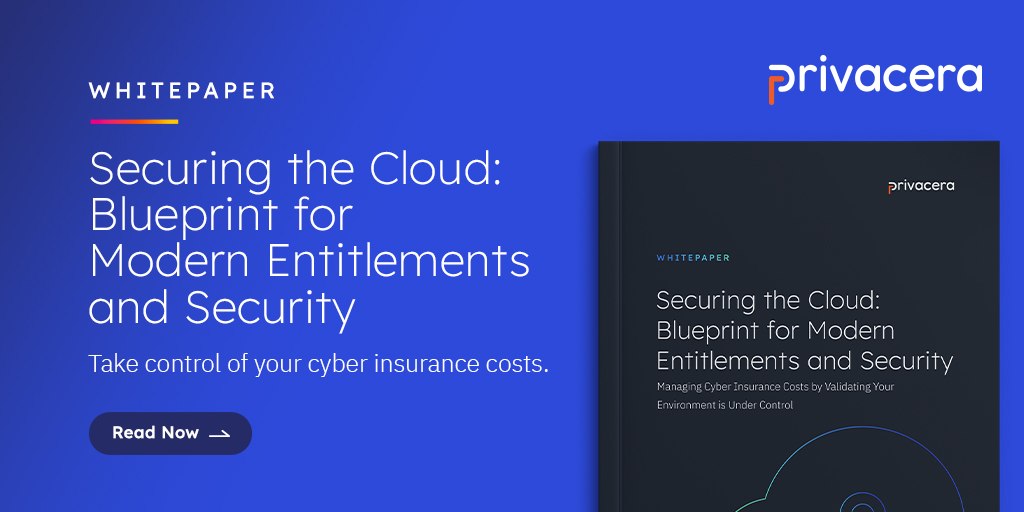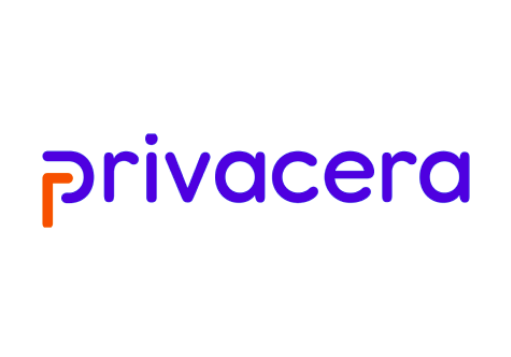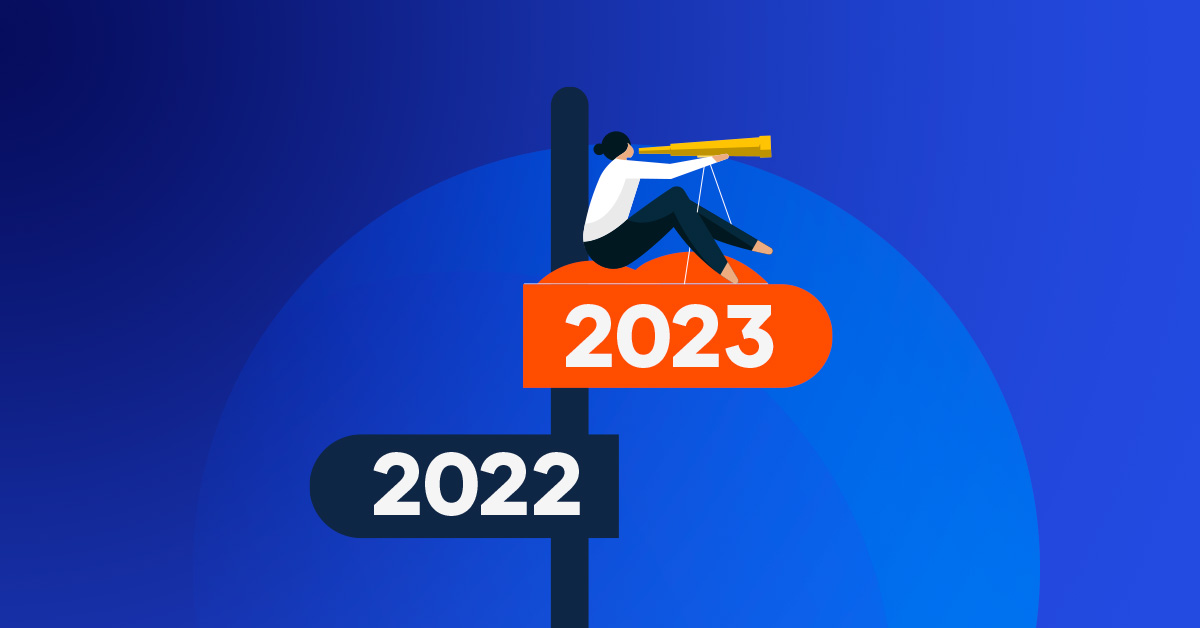“Today’s companies need to be proactive, not only about data security and investing for long-term growth and business success, but getting ahead of the ever-shifting regulatory environment. Data security platforms will continue to gain popularity as they help simplify the complexity of managing data access controls, support data governance strategies, and drive higher-value analytics that unlock the full data-driven potential of enterprises.” – Privacera CEO Balaji Ganesan.
Privacera shares a round-up of 2023 predictions and trends and what the company believes will be top of mind for enterprise organizations that want to compete in a data-driven economy.
Chief Data Analytics Officers will Become a C-Suite Norm
As data becomes more recognized as a strategic bet companies need to make, the Chief Data Analytics Officer (CDAO) role will become even more universal. Enterprises aspire to be data-driven to improve decision-making and achieve desired business outcomes. However, without someone strictly focused on leading data analytics, assessing internal and external data strategies, and developing data architecture, it’s difficult to accomplish. While it’s a developing space, with many of the executives new to the role, the ROI of bringing a CDAO in-house is clear. Over time, we’ll see more CDAOs move front and center for data monetization strategies, similar to how CISOs became a “new norm” for information security strategy on the executive team.
The Appetite for Multi-Cloud Adoption Will Continue to Grow in 2023
In terms of adopting a multi-cloud environment, most enterprise-level organizations are in the ambitious early stages of migration and still have a lot of data that needs to be moved. There are some “born in the cloud” enterprises that are fully integrated and working well. But over the next year, we expect the adoption of multi-cloud services to continue to rise as a majority of business leaders look to modernize their data architecture.
Since more organizations have shifted away from a single cloud solution when it comes to implementing their data strategies, we’ll see many business leaders faced with the challenge of deciding which service providers they actually want to mix and match. To help make those important decisions, we expect business leaders to take a “best of breed” strategic approach that looks at individual organizational use cases. Choosing different cloud partners and services to handle different business needs is today’s reality. It requires a comprehensive data security governance approach to address the increasing challenges of a multi-cloud data strategy.
We also expect to see a shift in the share of voice from public cloud vendors to focus more on data governance with secure and trusted data management strategies. There’s a sharpened focus from enterprise leaders seeking cloud partners who can offer more than data storage. They’re looking for even more scalable ways of building data-centric applications, including self-service analytics and modern data collaboration to get even more mileage, and ultimately value, out of that data. Integration with a scalable Data Security Platform (DSP) is a critical prerequisite to achieving this modern data collaboration.
Emerging Tech to Keep an Eye on Data Analytics, Privacy, and Security
We’ve recently seen many new vendors in the data security space looking to solve several challenges, including how enterprises can accelerate analytics through fine-grained access of data, while remaining compliant. This exhibits no sign of slowing down.
The adoption of data analytics, privacy, and security solutions assure both a company’s data and that of its customers are safe—data security governance plays a critical role. Today’s companies need to be smart, not only about security and investing for long-term growth and business success, but they must also adhere to the ever-shifting regulatory environment.
DSPs are essential for the modern data stack, as they provide data protection using a combination of fine-grained access controls and policy enforcement across:
- The data estate
- Data masking
- Sensitive data discovery
- Data classification
- Data encryption
- Automated workflows
That degree of comprehensive control and enforcement is essential to meeting changing regulatory requirements.
The combined power of this technology will skyrocket over the next few years as more and more data amasses within organizations. According to the Gartner Hype Cycle for Data Security 2022, a data security governance framework should be used to identify and prioritize business risks that will be mitigated by data security policies.
Zero Trust Comes of Age and Data Mesh Promotes Democratization
Zero trust and data mesh will also see an uptick in implementation. Both of these concepts allow data to stay where it is and make sense of it safely, ensuring the preservation of compliance and privacy. Zero trust is an approach to enterprise cybersecurity that presumes no connections to corporate IT assets should be trusted. Instead, zero trust begins with a “default deny” security posture: Trust no one and grant the least privilege.
Data mesh promotes data democratization by enabling enterprise-wide users to access any dataset across organizations independent of data location, resulting in more business units to monetize data and drive business transformation.
DSPs will continue to gain popularity as they help simplify the complexity of managing data access controls, drive self-service analytics, support data governance strategies, and allow enterprises to realize their full data-driven potential.
Creating the Frictionless Data Security Governance (DSG) Environment
Implementation of a data security governance environment that meets the enterprise where their data lives is essential in today’s business landscape. Doing so will ensure organizations are working towards meeting every changing and complex compliance requirement while simultaneously protecting and regulating discovery and access of sensitive company and customer information. Frictionless also translates into an all-encompassing DSG environment that is universal by applying security and governance controls to the entire data estate within smaller and larger organizations. This approach leaves nothing to chance and allows for a DSG framework where policies and declarative rules are not just expressed by code, but can automatically be instantiated based on intent. With such a scalable DSG environment, this lends to an intelligent system that allows for immediate action to minimize risk for data-driven organizations, while maintaining an ambient presence in the day-to-day experience with data collaboration and monetization. A solution such as this is also context-aware and immersive. For example, similar to how a GPS readjusts when you turn the wrong way, a frictionless data security governance environment will seamlessly course-correct and act in the same manner.
Congress Could Introduce New Federal Regulations to Protect Consumer Data
Consumers are becoming more aware of how organizations are collecting, storing, and using their data. This is creating an urgency for Congress to write and pass federal regulations surrounding data security and privacy. Currently, regulations are enforced at the state level in places like California, Colorado, and Utah. But the U.S. market needs a uniform federal mandate, similar to the EU’s General Data Protection Regulation (GDPR), which we might see come to life with the newly elected Congress.
Moving toward a federal privacy law has bi-partisan support. Earlier this year, we saw the American Data Privacy and Protection Act (ADPPA), passed out of the House Energy and Commerce Committee, which would be a common standard for how to handle data. Fresh off the midterm elections, we’re expecting these conversations to continue among legislators and businesses alike.
As we wait for legislation, we can expect to see more “Big Fish” companies receive hefty fines for security incidents that resulted in breached information. Regulators will look to make an example of those who have been compromised with fines and other significant consequences. It’s more important than ever that companies are proactive about their security approach.
Multinational Data Security Governance Enforcement
According to a recent study reported by VentureBeat, by 2025, global data creation is projected to grow to more than 163 zettabytes. As the multinational datasphere continues to expand, meeting increasing compliance needs, reducing data breaches, and implementing data governance strategies are becoming top priorities for both small and large data-driven organizations. Massive regulatory fines coupled with the global cost of a data breach reaching nearly $4.4 million USD in 2022 results in a very high financial price tag for the enterprise.
Companies looking to create data architecture across many borders and regulatory compliance statutes will be wise to implement a centralized data plane that manages and secures all data in a consistent and scalable fashion. This mission-control strategy helps reduce security risk and ensures all data adheres to governance policies in any given region. The more granular and separate the entities are, the safer the data plane remains.
A Call to Action: Framing The DSP Industry Evolution for Analysts
Many analysts have noted the DSP category is evolving into a state of maturation. As innovation continues to drive transformation in the security and governance spaces, analysts must shift how they frame their conversations. By conveying how the enterprise can consolidate technology offerings and then identifying who is developing solutions for specific industry needs, analysts will be closer to portraying the existing DSP landscape. Traditionally, analysts and related research have focused on technology sectors, each with its set of representative vendors. The unprecedented pace of innovation has led to an explosion of categories or sectors representing small, point technology areas. This will require consolidation to represent the larger use cases customers are seeking to solve for today’s challenges. During the discovery process, analysts can instead take a holistic view and assess market disruption with a close lens. This will help them understand how individual DSP offerings are combined to create a seamless experience for the enterprise and its customers.
Arm yourself with the DSP you need to proactively get ahead of these predictions and capitalize on critical trends. Explore how a secure and successful 2023 is within reach—request your demo today.





